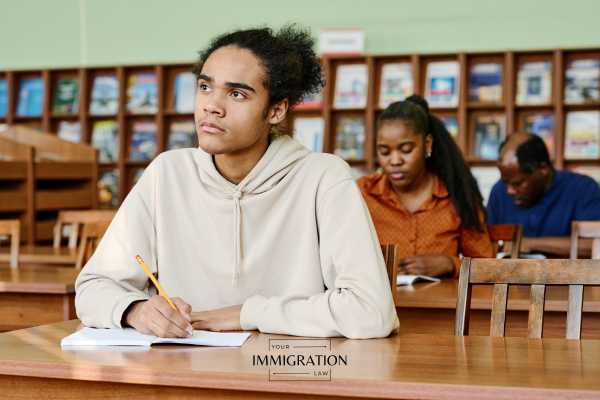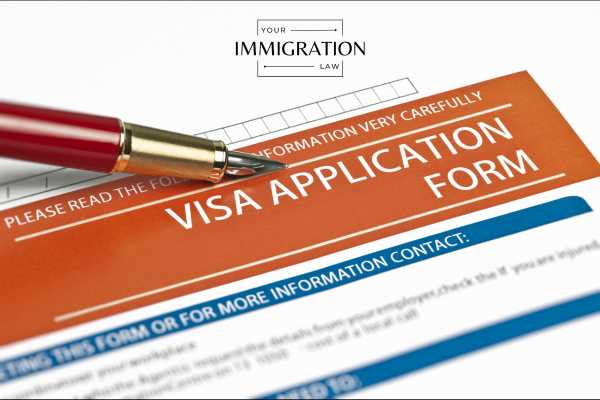The J-1 visa is designed for individuals participating in exchange programs, including students, interns, and researchers. This visa lets you gain experience and promote cultural exchange with the U.S. But, the application process is complex. It requires specific documents to ensure compliance. A J-1 visa attorney can help you navigate these complexities and ensure that your application is complete and accurate.
If you’re looking to take advantage of the opportunities offered by the J-1 visa, don’t navigate the process alone. Call a knowledgeable immigration lawyer at 313-631-8080 to get the assistance you need. Start your journey with confidence and make sure your application is handled effectively from start to finish.
Types of J-1 Visa Programs and Their Requirements
The J-1 visa program allows individuals to participate in a variety of cultural exchange programs in the United States. It is designed to promote the exchange of knowledge, skills, and culture between the U.S. and other countries. The J-1 visa encompasses several categories, each tailored to different types of exchange experiences. Here’s an overview of the common types of J-1 nonimmigrant visas:
Au Pair
The Au Pair program allows young individuals to live with an American host family and provide childcare services while experiencing U.S. culture. In exchange, the host family provides room, board, and a stipend. Au pairs typically participate in educational activities and cultural exchange opportunities during their stay.

To qualify for the Au Pair program, applicants must be between 18 and 26 years old, have a secondary school education or equivalent, and be proficient in English. Applicants should also have previous experience in childcare and clear a criminal background investigation. Au pairs must commit to a 12-month stay with their host family and participate in educational coursework during their stay.
Camp Counselor
The Camp Counselor program enables foreign nationals to work in U.S. summer camps, engaging in cultural exchange while assisting with camp activities. Camp counselors help manage camp operations, lead group activities, and foster a multicultural environment for campers.
For the Camp Counselor program, applicants must be at least 18 years old and proficient in English. They do not need to have specific qualifications but should have experience working with children or in a camp environment. The program is typically available to individuals who are currently enrolled in post-secondary education or who have recently graduated.
College and University Student
This J-1 category is for foreign students pursuing full-time studies at accredited U.S. colleges or universities. J-1 students may participate in degree or non-degree programs and are allowed to engage in academic training or practical work related to their field of study.
To be eligible for the College and University Student program, you must be accepted to an accredited U.S. college for full-time study. Students must prove they can afford their education and living costs in the U.S. Also, applicants must show they are proficient in English and meet their program's academic requirements.
Intern
The Intern category is for full-time students or recent grads. It aims to give them practical experience in their field in the U.S. Internships can last up to 12 months. They are designed to provide hands-on training and cultural exposure in a professional setting.
To qualify for the Intern program, applicants must either be currently enrolled in a foreign university or have graduated within the last 12 months. Internships should be directly related to the applicant’s academic field. Applicants must have enough English to succeed in the internship. They should not use the program as a substitute for regular U.S. jobs.
Physician
The Physician program is for foreign medical graduates participating in U.S. graduate medical education or training programs. This category includes residency and fellowship programs. They allow foreign physicians to receive advanced medical training in the U.S.
The Physician program requires applicants to have a foreign medical degree and to have passed the required medical exams (e.g., USMLE Step 1 and 2). Physicians must be accepted into a U.S. graduate medical education or training program and be proficient in English. Additionally, they must meet the criteria for obtaining an ECFMG certification.
Professor and Research Scholar
The Professor and Research Scholar program allows foreign professors and researchers to teach or conduct research at U.S. academic institutions. This category promotes collaboration between U.S. institutions and foreign scholars. It aims to boost academic and scientific exchanges.
Eligibility for the Professor and Research Scholar program includes having a post-graduate degree and a full-time teaching or research position at a foreign accredited institution. Applicants must be coming to the U.S. to engage in full-time teaching, lecturing, or conducting research. The program is not intended for individuals seeking tenure-track positions or intending to stay in the U.S. permanently.
Secondary School Student
The Secondary School Student visa program allows foreign high school students to attend an accredited U.S. secondary school and live with an American host family or in a boarding school. This program typically lasts for an academic year, giving students a chance to experience U.S. culture and education.

For the Secondary School Student program, applicants must be between 15 and 18.5 years old and not have completed more than 11 years of primary and secondary education. Students must demonstrate academic performance sufficient to participate in a U.S. high school and have a good command of the English language.
Short-Term Scholar
The Short-Term Scholar program is for foreign academics, researchers, and professionals. It allows them to engage in short-term research, lectures, or academic activities in the U.S. It is ideal for those who will stay in the U.S. for six months or less and seek academic exchange.
The Short-Term Scholar program is open to individuals who are professors, researchers, or professionals with expertise in a particular field. To be eligible, you usually need an invitation from a U.S. institution. It is to join a short-term academic or research program. Applicants must have sufficient English proficiency to engage in their academic activities.
Specialist
The Specialist program is for foreign experts. They have specialized knowledge or skills. They wish to share their expertise in the U.S. for a short time. Specialists may participate in professional conferences, training programs, or workshops to facilitate knowledge exchange.
To be eligible for the Specialist program, you must have expertise in a specialized field. You also need an invitation from a U.S. organization to join a knowledge-sharing or training program. Applicants must have significant experience and qualifications in their specialty area, and the program must not be used for employment purposes.
Teacher
The Teacher program allows foreign educators to teach at U.S. primary or secondary schools. This program fosters cross-cultural learning experiences for both the teachers and their students. Teachers can participate for up to three years, sharing their educational expertise and learning about U.S. teaching practices.
This program requires applicants to have:
- At least three years of teaching experience.
- Qualifications to teach in their home country.
- A degree equivalent to a U.S. bachelor's.
Applicants must prove their English skills and get a teaching job at a U.S. primary or secondary school for their stay.
Trainee
The Trainee program is for foreign professionals. They must be graduates with work experience in their field. This category allows them to join training programs. These programs will boost their skills and knowledge, and provide cultural exchanges. Job training can last up to 18 months, depending on the field.
What are the consequences of violating J-1 visa terms?
J-1 holders who violate their visa terms face serious consequences. It can affect your current status and future immigration opportunities. It is vital to follow the visa rules. It keeps your legal status in the U.S. and helps your J-1 program. Here's what you need to know about the potential outcomes of violating J-1 visa category terms:
- Loss of Status: If you violate the terms of your visa you may lose it. This includes failing to participate in your program, working outside your visa's scope, or not having required health insurance. Once your J-1 visa status is terminated, you are expected to leave the United States immediately.
- Program Termination: Your program sponsor can terminate your exchange program participation if you do not comply with its requirements. This termination generally results in the revocation of your DS-2019 form, which is necessary for maintaining J-1 status.
- Out-of-Status Consequences: Being out of status means you are unlawfully present in the U.S. This can lead to deportation proceedings and potential future visa or immigration difficulties. Overstaying your visa or violating terms can impact your ability to return to the U.S. in the future.
To avoid violating your J-1 visa terms, carefully review and follow all requirements outlined by your J-1 visa sponsor and the U.S. Department of State. Regularly communicate with your sponsor to ensure compliance and promptly address any issues or changes in your situation. If you have violated the terms of your status contact an experienced immigration lawyer for help.
Key Steps in the J-1 Visa Application Process
The J-1 visa application process has several key steps. Each is crucial for meeting the requirements and getting your visa. Here’s a comprehensive guide to help you navigate the process:

- Determine Eligibility and Program Type: Begin by identifying the specific J-1 visa program that aligns with your goals. The J-1 visa covers various exchange programs. These include internships, research, teaching, and cultural exchange. Ensure you meet the eligibility criteria for the chosen exchange visitor program and understand the specific requirements.
- Find a Designated Sponsor: You must be sponsored by an organization approved by the U.S. Department of State. This sponsor will oversee your program and issue the necessary documents. You can find a list of designated J-1 sponsors on the Department of State’s website. Contact a sponsor to apply for program participation.
- Complete the DS-2019 Form: Once accepted into a program, your sponsor will provide you with Form DS-2019, Certificate of Eligibility for Exchange Visitor Status. This form is vital for your visa application. It confirms your acceptance into the exchange visitor program. It also provides details about its duration and terms.
- Pay the SEVIS Fee: Before applying for the visa, pay the SEVIS (Student and Exchange Visitor Information System) fee. This fee supports the administration of the SEVIS system, which tracks your status throughout your program. Payment can be made online, and you will receive a receipt that you need for your J-1 visa interview.
- Complete the DS-160 Form: Fill out the DS-160, Online Nonimmigrant Visa Application form, through the U.S. Department of State’s website. This form collects your personal information and details about your visa application. Ensure all information is accurate and complete, as errors can delay the process.
- Schedule and Attend a Visa Interview: Book an appointment for a visa interview at the U.S. embassy or consulate in your home country. At the interview, present your DS-2019 form, DS-160 confirmation page, passport, SEVIS fee receipt, visa application fee receipt, and any other documents required by the embassy or consulate.
- Prepare Supporting Documents: Along with the forms, you may need to provide supporting documents. These include proof of your ability to support yourself during your stay, evidence of ties to your home country, and any other documents requested by the embassy or consulate. Ensure you have all required documentation ready for your interview.
- Attend the Visa Interview: During the interview, a consular officer will ask questions about your exchange program, background, and plans. Be honest and provide clear, concise answers. The officer will assess your eligibility based on your responses and the documents provided.
Can You Bypass the Two-Year Home Residency Requirement for a J-1 Visa?
The two-year home residency requirement is a provision that applies to certain J-1 exchange visitors. It requires that those affected must return to their home country for at least two years after their exchange program. Only then can they apply for certain U.S. visas or for permanent residency. However, there are specific circumstances under which this requirement can be bypassed or waived.
- No Objection Statement: One common method to bypass the two-year home residency requirement is by obtaining a "No Objection Statement" from the government of your home country. This option is available to J-1 visa holders who do not have an obligation to return due to government funding or a medical program.
- Request by an Interested U.S. Government Agency: If a U.S. government agency is interested in retaining your services due to your specialized skills or expertise, it may request a waiver on your behalf. This is particularly relevant for individuals whose work is considered crucial to the U.S. national interest.
- Persecution or Hardship: If you can demonstrate that returning to your home country would result in persecution or extreme hardship, you may be eligible for a waiver. You would need to provide substantial evidence of the risks or hardships you would face.
- Request for a Conrad 30 Waiver (for medical doctors): For medical doctors who have fulfilled the requirements of the Conrad 30 program, a waiver may be available if you agree to work in a medically underserved area in the U.S. for a specified period.
Successfully Navigate Your J-1 Visa with Trusted Legal Guidance
The J-1 visa process can be tough. But, with good legal support, you can boost your chances of a successful application. Ensure your journey to the U.S. is smooth and efficient.
Ready to get started? Contact a temporary visa attorney today to receive guidance and support throughout your application process.